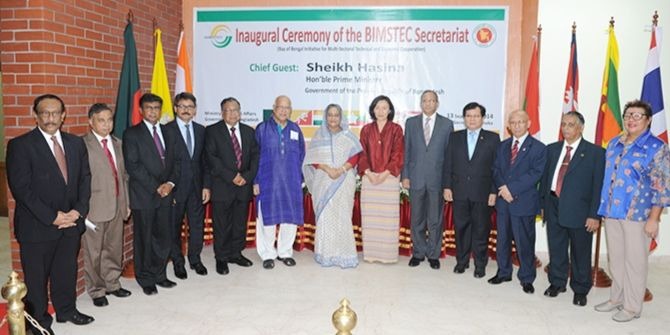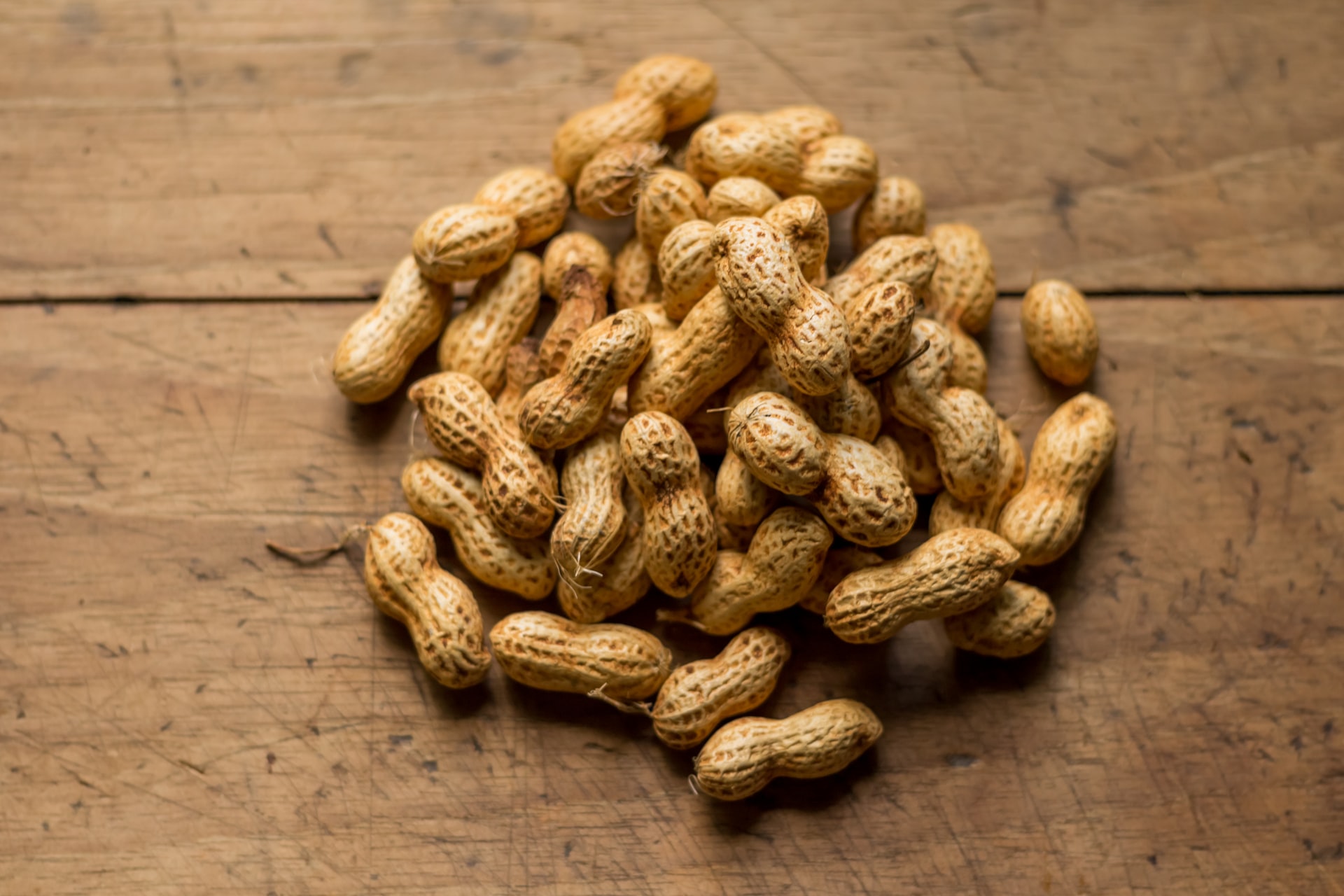As LSE’s Julia Huang continues her fieldwork among Assam’s cycle-rickshaw pullers, she discovers the extent of India’s informal economy and starts making difficult decisions about her research process. Click here for her first post from the field.
For four consecutive days, the cycle-rickshaw pullers of small-town Assam were conspicuous by their absence. In the lead up to 21-24 October, Assam’s urban spaces witnessed vibrant transformations. Auditorium-sized pandals (structures comprising multicoloured cloth panels swathing bamboo-pole skeletons lashed together with fabric) rose slowly over the bustling market. Sari and mekhala chador (Assamese women’s two-piece national dress) shops hosted extravagant sales, and families dressed up for evening outings to purchase new clothes. Makeshift roadside food stalls tempted passers-by with an assortment of super-sweet sweets. Formal- and public-sector businesses as well as schools delighted in an official holiday lasting up to 10 days. Durga Puja was upon us!
The annual Hindu festival to celebrate the victory of the goddess Durga over the evil buffalo demon Mahishasura, Durga Puja is most lavishly observed in the Indian states of Assam, Bihar, Jharkhand, Orissa, Tripura, and West Bengal. Pandals are hosted by the leaders and elites of the community (including police offices, municipal boards, temples, and market unions) for the general population, irrespective of caste, religion, or profession.
During Durga Puja celebrations, the town’s 11 pandals filled with people worshipping by day and enjoying music and dance shows by night. Evenings took on a carnival-like aspect, charged with the competing sounds of loudspeakers of neighbouring pandals and with tens of thousands of families strolling from one end of the town to the other and back again. Dressed in their finest attire, festival-goers searched for their relatives and friends and stopped for a tea and sweet treat, a balloon for the baby, and a necklace for the wife. Police blockades delineated the festival’s borders thus preventing the entry of motorised vehicles and cycle-rickshaws.
For me, the four-day-long absence of the rickshaw pullers induced ethnographic anxieties about collecting “enough” data and about being at the right place at the right time. Where were all of the people I was in Assam to meet? Missing one day of work, due to illness or bandh (market closures often due to political strikes, which have been numerous in Assam since August), often leads to the inability to bring food home at night. How were the rickshaw pullers coping with five days of being shut out of town? (The world’s heart melts – and pockets open – for the rickshaw puller Bablu Jatav and his motherless month-old baby in Jaipur following a BBC article and its update, but upwards of ten thousand rickshaw pullers face similar daily challenges without fanfare or outpourings: social enterprises such as Rickshaw Bank, SMV Wheels, and Sammaan Foundation attempt to tackle these problems systematically.)
Knowing this, I wondered whether I should have skipped the festivities to go to the villages of rickshaw pullers to find out what they do in the absence of normal work. Sankar, the principal collection officer of Rickshaw Bank (the social enterprise that is my research focus) is himself missing out on Durga Puja to accompany his father – who fell from his nearly constructed village house, dislocated his hip, and fractured his femur – to Assam’s capital city. The cost of travel, surgery, and long-term, health-related expenses as well as a low salary puts this collection officer on par with rickshaw pullers in terms of financial instability. Should I have accompanied Sankar to the city as he grappled with uncommunicative medical practitioners and impending household financial doom? No amount of pre-fieldwork training can prepare us for these spot decisions, when fieldwork encounters and moral dilemmas become clear only after events play out and post-facto explanations are available. I let myself get swept up by the town’s collective fervour to celebrate Durga, the mother of the universe who banishes evil from our lives.
Soutik Biswas, BBC’s Delhi correspondent, suggests that perhaps such long holidays contribute to the economic stagnation, the “appalling work culture and government inertia” of states such as West Bengal and Assam. This analysis may be the case for the public and private sectors and certain systematically excluded informal professions such as cycle-rickshaw pulling. My experience of Durga Puja, however, ended up being far from a guilty splurge on entertainment and non-productivity. I became aware of an array of informal workers who have benefitted tremendously from Durga Puja (and presumably do so every year) as much as the rickshaw pullers have been constrained by the holidays.
The pandal builders were the first ones I noticed in the preparations leading up to Durga Puja. These “masters of the bamboo,” as Sankar calls them, used no materials or tools beyond dry bamboo poles bound at the joints with tightly wound strips of teeth-torn cotton cloth. They hoisted themselves up the equivalent of one storey per day, climbing as they constructed upwards, stepping nimbly from horizontal pole to pole as if they were on firm ground. They even took their tea breaks at an altitude of 30 feet.
More popularly celebrated are the artisans who meticulously create and adorn the nine-foot-tall idols of the goddesses Durga, Laxmi, and Saraswati and the gods Ganesh and Kartik that form the defining centerpiece of any pandal. From August until 20 October, piles of wood, clay from the banks of the river, and pots upon pots of paint gradually take on form, then colour, and finally vitality as mighty deities with flashing eyes, which are the very last features the artisans bestow upon them during the holy process.
Other urban informal workers who come to the fore during Durga Puja are the cloth-sellers and tailors who dress the town’s inhabitants in their finest; the street vendors of sweets, samosas, and souvenirs; the pandal decorators; the auto-rickshaw drivers who ferry the district’s rural residents in and out each day; the drummers and dancers who help to worship the deities; and the long-boat men who usher the mud idols into the river where they are immersed in ritual fashion on the final day of Durga Puja.
I do not know enough yet about the organisation of these labourers to say if they work for themselves or for a mafia-like boss (as many rickshaw pullers do), how they share and spend the earnings, what their standard of living and activities are like during the rest of the year, or how much profit each of these informal professions makes. I do know, however, that holidays resulted in tremendous business for these professions-it costs Rs 20,000 to build a pandal and up to Rs.50,000 (GBP 581) to commission a full set of goddess and god idols. And that is a huge amount of money by small-town India’s standards that would not have been earned were it not for this festival season. Now having enjoyed an enlightening festival season, I eagerly welcome the return to normal life, just as I eagerly welcome the return to town of the rickshaw pullers.
Follow my journey through ethnographic research and the lived realities of Assam’s working poor on this blog. Click here for my first post on social enterprise development initiatives such as Rickshaw Bank.
About the Author
Julia Huang is a PhD Candidate at LSE’s Department of Anthropology.








Durga Puja is celebrated in very grand way in Assam as well as West Bengal. Like these small Assamese groups there lot of small groups who celebrate Durga Puja Festival in grand way. Assam people are best in decorating the Pandal for Durga Puja with the bamboo and other materials. This post have specified the joy and value of celebrating Durga Puja and how more and more people are joining this festival. Thanks for sharing such a wonderful post.